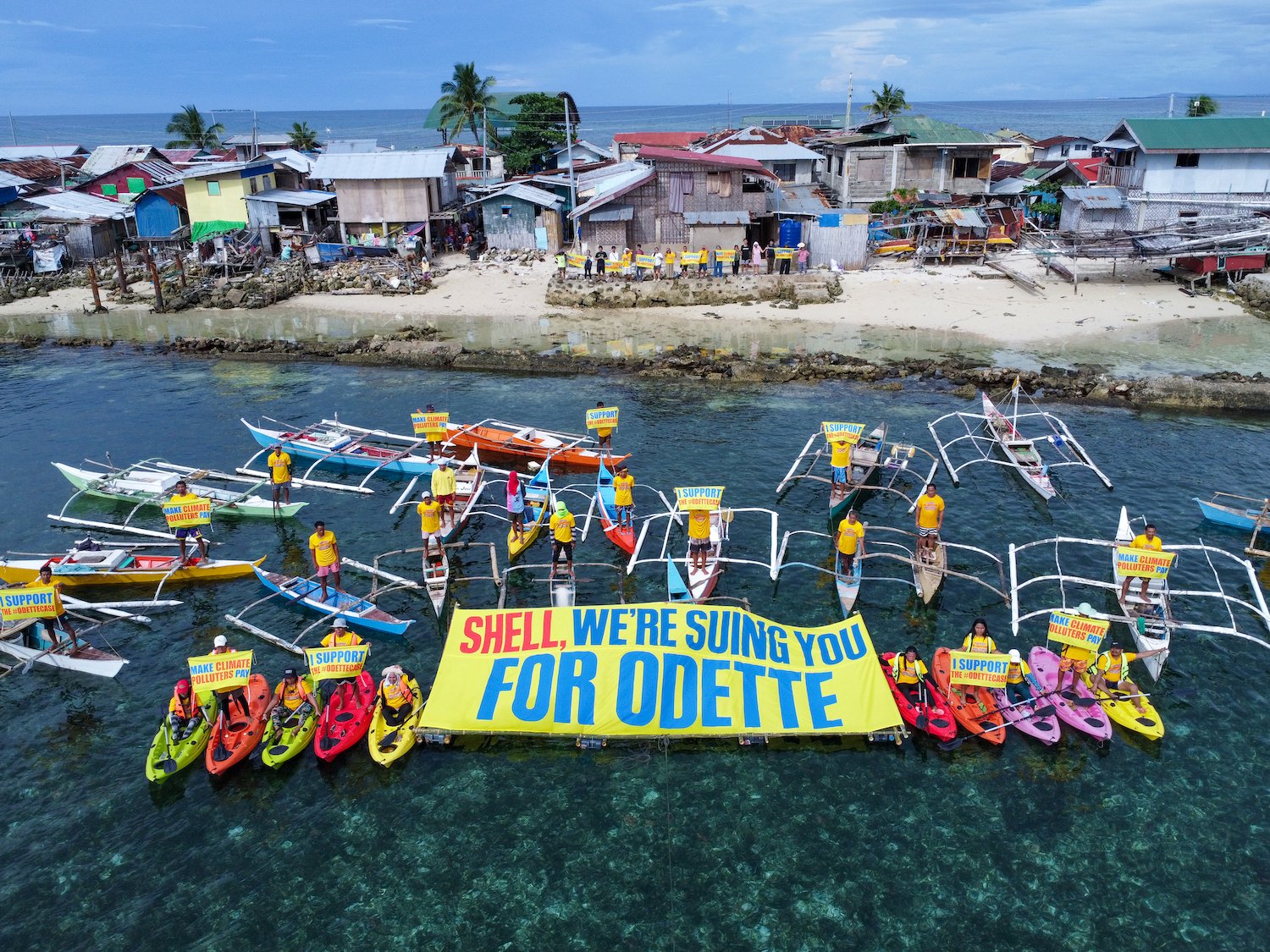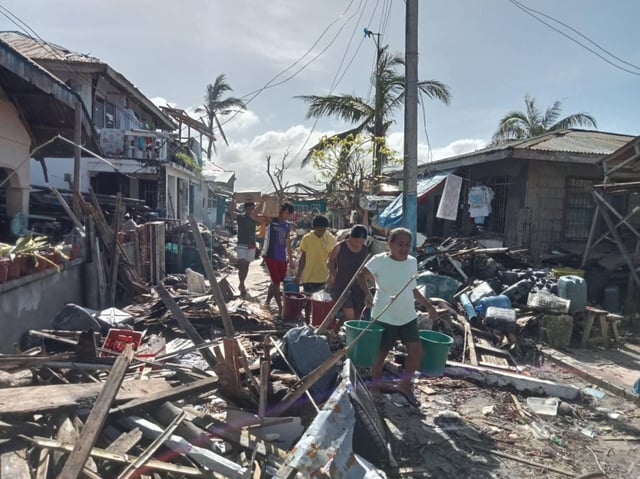
Photo by: Ivan Joeseff Guiwanon
Sixty-seven Philippine citizens have filed a legal claim against oil giant Shell for its role in the anthropogenic climate change that supercharged Typhoon Odette, decimating parts of the island nation and killing more than 400 people. The case draws on recent attribution science that connects climate change to the likelihood of storms like Odette, and increased precipitation and wind speeds during them. It’s the first civil case to directly link oil and gas-fueled climate change to deaths and personal injuries in the Global South.
“ This is essentially RWE in action,” Joy Reyes, policy officer at the London School of Economics’ Grantham Institute said, referencing the case settled earlier this year between a Peruvian farmer and German coal giant RWE. Farmer Saul Lucian Lliuya was not awarded damages in that case, but the court did side with him on all the key questions of law that arose, particularly questions around jurisdiction and whether it’s possible to hold a company in one country legally liable for damages in another. Petra Minnerop, a professor of international law at Durham university, told Drilled at the time that the RWE decision meant someone in Tuvalu whose home was affected by sea level rise, or a person in Pakistan whose home was destroyed in a catastrophic flood could potentially sue for climate harms – within certain limits.
“It would still be wrong to say everyone in Switzerland can now sue RWE,” Minerop says. “Even if you have a concrete event, you would need to demonstrate that there is attribution between this event and the harm, so you would need to have a study that exactly demonstrates that.”
The claimants in the Odette case have exactly that. Not just attribution science that proves the broad strokes of their argument, but a study about Typhoon Odette in particular. A June 2025 study from researchers at Imperial College London and University of Sheffield found that “extreme daily rainfall such as that observed during Typhoon Odette has become about twice as likely during the Typhoon season over the southern-central Philippines due to anthropogenic climate change,” and that “the wind speeds of category 5 typhoons like Odette have become approximately 70% more likely due to anthropogenic climate change.”
Overall, the study concluded, “anthropogenic climate change has likely more than doubled the likelihood of a compound event like Typhoon Odette.”
The case also incorporates research and reporting over the last decade that indicates Shell knew as early as the 1980s about their product’s contribution to climate change, and how unchecked climate change would impact the world, and chose to increase production of fossil fuels rather than act on the problem.
Shell did not respond to a request for comment by our publication deadline, but this piece will be updated to reflect any response received.
The Typhoon Odette case nods to opinions from both the Commission on Human Rights of the Philippines and the International Court of Justice as well, which affirm the human right to a healthy environment and the legal obligations of the world’s governments to protect that right. Though those opinions are not legally binding, Reyes says they nonetheless established “a significant precedent.”
“ So many cases have since made mention of the Philippine Commission on Human Rights and it’s the same with the ICJ, I suspect several cases will reference it.”
But ultimately, Reyes says, it will depend on the quality of the arguments made in courts and of the science backing those arguments. “One thing we are really interested in is what science is going to be used, even in terms of whether it’s just IPCC reports, or are we going to see more local understandings or local indigenous knowledge as well? What kind of observational evidence might be presented? That's a very important thing considering the data that is available to those in the Global South.”
The claimants are seeking damages as well. Now that the claim has been submitted to Shell, the company has a certain amount of time to respond. If Shell cannot respond satisfactorily to the allegations made against it, and no agreement between the parties can be reached, formal court proceedings will ensue in December 2025.


